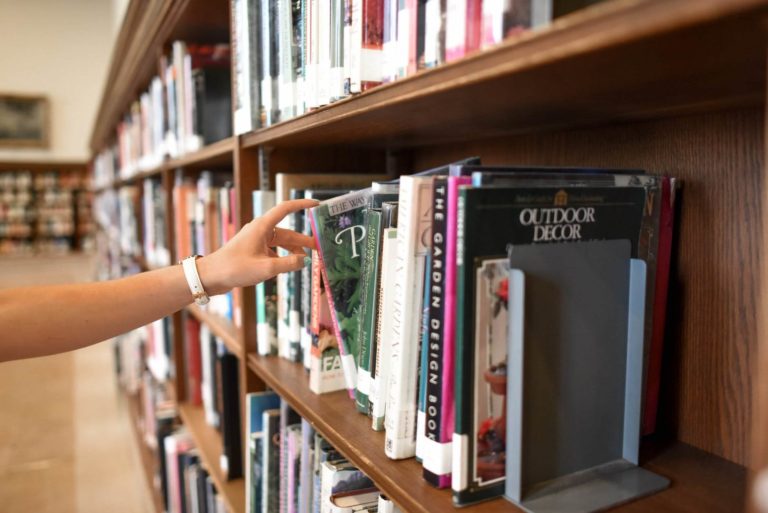INTRODUCTION
Legal Profession is a field that requires constant learning and relearning of education. In the present era, the impartment of legal education, in particular, has gone down the drain. Many law schools across the globe have failed to meet its very basic objective of providing proper education to the students. Most of the private institutions that provide legal education does not meet the standards established by the Bar Council of India. Absence or inadequacy of access to legal resources has been one of the major problems faced by law students while pursuing their law degree. In a legal profession where, ‘Ignorance of Law is not an excuse’ which is one of the important underlying principles but taking into consideration the current scenario in the legal system, access to knowledge of the law itself has remained as a primary concern of legal education. The quality of education provided to law students has deteriorated to such an extent where students who complete their graduation from law schools and seek admission for Post Graduate courses are as good as freshers in law.
MAJOR PROBLEMS FACED IN LEGAL PROFESSION
- Arduous working hours
As we all are well aware that college is a place to explore one’s abilities and capabilities. Many Private law schools have onerous working hours by burdening the students to attend classes from 8:45 am to 5:15 pm. Students are bound to sit and attend the classes. By making the students stay inside the campus till 5:15 pm, they are not able to participate in other activities such as the moot court, research paper, conferences, etc. One needs to understand that making students sit throughout the day brings nothing but frustration in them. Students need to be given time to participate in other extra-curricular activities rather than sit under a roof and listen to non-interactive lectures.
- Faculties cum Researchers
The criteria for recruiting faculty members for law schools should be increased. Qualified and proficient faculty members should be appointed who has knowledge of the subject. Due to a lack of faculty members, at times, the students are either asked to carry out self-study or faculties who are not experts in the subject are asked to carry out the lecture classes. Many law schools are student-driven. Hiring good faculty members as well as sound researchers has become a tedious task and one of the major problem in legal institutions which needs to be brought to light as faculties are the one who molds the future lawyers in the right path. The outcome of the law students solely depends upon the ability of the institution to provide the right kind of intellectual environment.
- Developing Physical Infrastructure and Financial Resources
There is a need for creating sound physical infrastructure for law schools in India. Funds need to allocated for developing research projects and encouraging faculty members. Students should be provided with the necessary environment and atmosphere that inspires them to study. Universities that lack physical infrastructure and financial resources should not ensure education.
- Teaching Methodology and resources
Faculty members must change their methods of teaching. Professors must adopt new forms of technology as a method of teaching and make it an interactive session. They must make sure that the students have understood the concepts. Many law graduates, even after a law degree they are ignorant about the basic concepts. Often faculty members or professors are preoccupied with their research and publications that withers the students’ interest in their course work. Most of the database access demands substantial payment that makes the students look for alternative resources. Law schools must ensure that they provide the students with the best of the resources. The resources must be made available off-campus too for students participating in moot courts, conferences, etc.
- Improvisation of Placement Cells
Many law schools do not have appropriate placement cells and the students graduating from those law schools find it difficult to get themselves placed in a firm. The reason behind law schools not having proper placement cells is because law firms and companies hesitate themselves to go to a few law schools which are unknown or unidentified and recruit students. Students are forced to take up a job as legal consultants for start-ups or engineering-based companies because corporate companies or well-established law firms decline to appear to unrecognized private universities. This has been the scenario in many universities and students are facing a hard time after graduation. Furthermore, Students who are interested in a specified field of law find it demeaning to get placed in a start-up company or take up a job that is not of their interest. If this prolongs, law schools will ultimately be unable to attract new students and remain financially viable.
- Establishing proper standards for Internship Evaluation
An internship is a mandate for a student pursuing his/her law degree. It is a platform for applying their skills and acquired knowledge in law schools into reality. Also, one needs to get exposed to know where they stand. In order to get exposed, one needs to get an opportunity to prove themselves. Securing an internship has been a strenuous task as there are no proper standards set for securing an Internship by a law student. This is one of the biggest challenges faced by the students today which needs to be resolved. Many law students who study in private universities or other law schools (which are yet to be recognized) often find it hard to sourcing good internship programs while simultaneously pursuing their Bachelor’s degree. The main reason behind this demarcation is that the firms which offer internship programs have come to the notion that students pursuing their degree from National law universities are the best. The brand has been played a pivotal role and has gotten into the minds of many law firms which has, in turn, made them to frantically recruit the students based on the brand. This is not only one of the major drawbacks faced by law students studying in private universities but also is a kind of discrimination on a broader scale. There aren’t a standard criterion for evaluating the students seeking internships which have led to a plethora of problems. Added to that, many law firms in the name of providing internship does not provide any work to the interns. To be precise, interns are treated as slaves or made to sit idle from 9:00 am to 5:00 pm. By granting internship opportunities for namesake, many law firms have enlarged their name and fame. As internships enhance one’s analytical abilities and thought process, it shouldn’t be taken for granted.
CONCLUSION
The system of legal education in India is facing some significant challenges which need to be looked upon. On the other hand, National Law Schools have flourished over the years by providing new opportunities to create institutions of excellence. Law schools should establish the criteria for assessing teaching quality based on course objectives, just as journals set standards for the papers they publish. Some of the challenges faced by private law schools include maintaining quality law schools, expanding the presence of good caliber law teachers and impart good legal education.
Lack of proper facilities and means including infrastructure, internship management, placement cells, teaching methodology, faculties, absence of research facilities, etc




